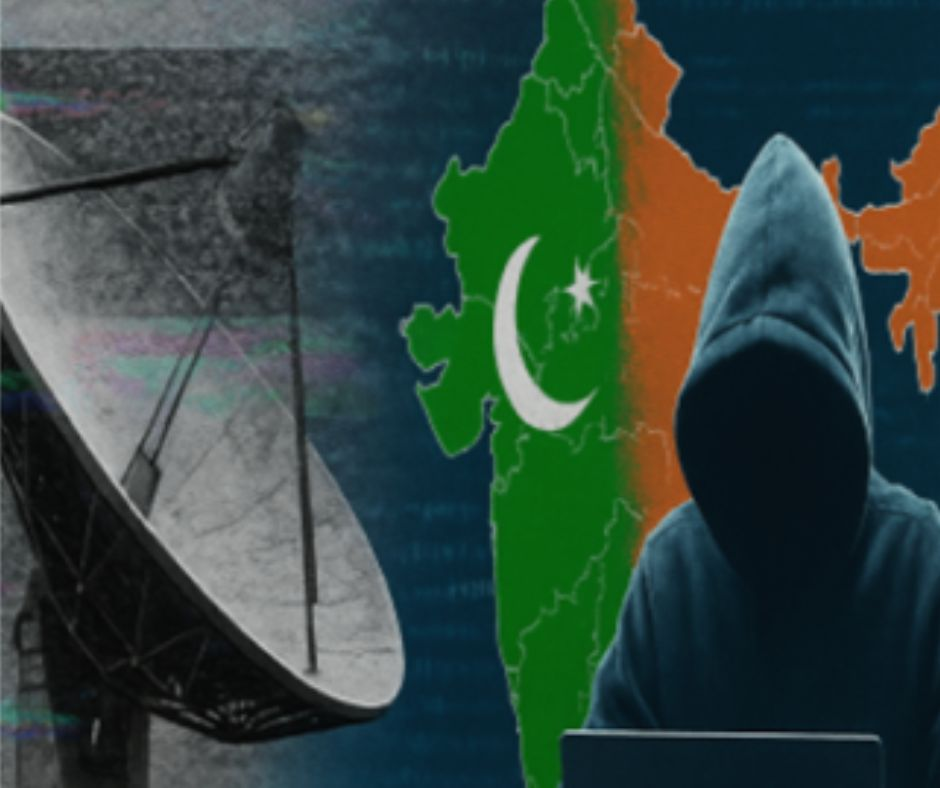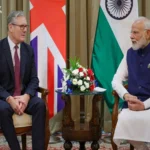War is no longer fought only with boots on the ground or jets in the sky, it’s waged in invisible realms, across fiber optic cables, satellites, and strings of code, what is now being described as a paradigm shift in warfare. Reportedly Pakistan’s cyber-attacks against India in recent operation ‘Bunyan al Marsoos’, did not just target military hardware, it also shattered India’s digital soul. If this conflict had a soundtrack, it would be the dead silence of disrupted command and control, a haunting stillness that signals a breakdown in Indian military communications.
During Operation Bunyan al Marsoos, Pakistan reportedly employed a multi-domain strategy that prominently included cyber warfare and electronic warfare (EW) capabilities. Pakistan’s cyber operations were majorly focused on Disruption/ intrusion of India’s C4ISR (Command, Control, Communications, Computers, Intelligence, Surveillance, and Reconnaissance) Systems, that had created temporary paralysis or delays in the Indian military’s chain of command.

India’s digital battlefield went dark. GPS and navigation systems, vital to aircraft, drones, and missiles, vanished like dying stars. Communication satellites fell silent. Drones crashed, missiles strayed, naval vessels drifted aimlessly. The military’s integrated command unraveled into chaos. IAF radars flickered with static, naval positioning systems turned unreliable. Army units lost access to real-time drone feeds and encrypted communication. Decades of seamless tri-service coordination collapsed in seconds. This wasn’t an attack of firepower; it was precision warfare in the digital realm. The Indian military, long considered a technological juggernaut in the region, found itself paralyzed, not by physical force but by digital invisible hands.
The power to render a military blind without firing a bullet is a capability that few nations claim. And yet, Pakistan did not stop there. This wasn’t merely tactical brilliance. It was psychological warfare, what followed was a cyber offensive unlike anything the region has seen. This was not a leak, not a hack, it was digital annihilation. Over 1,700 Indian web servers were wiped clean, fifteen government email systems were infiltrated, thirteen federal websites, including utilities and bureaucratic portals, were defaced or taken offline entirely. SCADA systems governing Indian Railways, Delhi’s gas networks and North Regional Electric Grid system were compromised, disabled, or destroyed. A total of 120 routers and over 1,300 IP surveillance cameras across the country were neutralized.
This was not symbolic, rather strategic that creates confusion, weaken infrastructure, sow distrust, and leave the nation doubting the integrity of its own systems. It was the kind of assault that’s difficult to trace and harder to defend against. A missile leaves a crater; a cyber-attack leaves a void of information, of trust or of control.

This operation shattered the illusion that conventional power ensures security. Decades of investment in aircraft carriers, nukes, and stealth fighters were undone by a keystroke. Cyber war isn’t the future, now it is the front line and India’s silence in its aftermath isn’t just strategic; it’s damning. In moments of true crisis, silence speaks volumes. Is Delhi still recovering, or simply out of answers? Either way, the quiet is deafening or it echoes Pakistan’s success.
This event is South Asia’s Pearl Harbor, but with data centers instead of battleships. The psychological shock is just as potent. You can’t shoot down malware with a missile. You can’t scramble jets to intercept a virus. And you can’t call a ceasefire on an algorithm. What Pakistan has possibly demonstrated is not just offensive capability, but doctrinal evolution, a leap from kinetic warfare to cognitive control. They didn’t just disable systems, they rewrote the rules.
Globally, the implications are chilling. India’s digital collapse could happen to anyone. In a world of smart grids and cloud-based command centers, geography no longer shields nations. A keystroke in Karachi can paralyze systems in New Delhi. What’s more dangerous is the ambiguity, cyber warfare lives in a legal void; no Geneva Conventions, no treaties, no rules. It’s the perfect arena for smaller powers to strike big, undetected and without consequence. This isn’t a future threat. It’s a present danger. National security now hinges on cyber strength, not just soldiers or stockpiles. The next war won’t start with a bang, rather it will probably with a login failure.
For India, the path forward is clear but complex. Recovery isn’t just about rebooting servers, it’s about rewriting doctrine. Cyber readiness must be ingrained in military training. Civilian systems must be shielded from vulnerable networks. Intelligence must adapt to detect digital threats before they strike. And globally, pressure must build for a legal framework, before the world sees its first digital Hiroshima.
Meanwhile, for Pakistan, the message is unmistakable. Whether this was a one-off flex or the unveiling of a sustained cyber doctrine remains to be seen. But one thing is clear, they’ve redrawn the battlefield. And they’ve done it with such surgical precision that no amount of hardware can ignore the software threat anymore.
Ultimately, the equation has changed now. This no longer about who has the better bomb. It’s about who controls the bandwidth.







